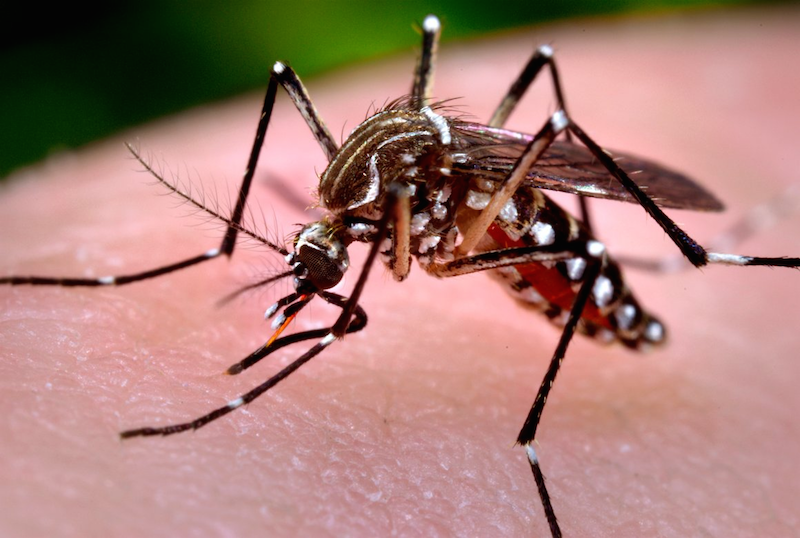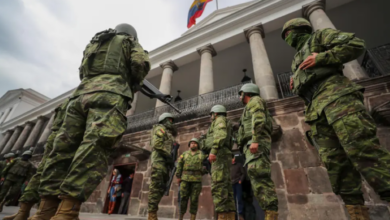Changing Latin America’s culture of insular science


Last year, a Mosquito-borne disease ravaged Latin America. As the virus spread, so did photos of black-and-white-striped mosquitoes, public health authorities spraying clouds of insecticide, and brain-damaged babies. Zika quickly became a household name as it infected more than 3 million people and left thousands of babies with irreparable neurological damage.
The world was aghast, and the World Health Organization won some praise for quickly declaring a public health emergency. But after that, critics have charged, coordinated global efforts to tackle the epidemic largely evaporated. “Latin America was pretty much left to its own devices,” Lawrence O. Gostin, director of the O’Neill Institute for National and Global Health Law at Georgetown University, told The New York Times in January.
And left on its own, the region struggled. Women traveling to Brazil for the Olympics, for example, were advised to protect themselves against mosquitoes and avoid pregnancy, but Latin America’s poorest and most vulnerable people went too long without real medical advice or intervention, resulting in a wave of brain-damaged babies. Meanwhile, even as Latin American scientists raced to collect data on the outbreak, their findings too often failed to cross borders and reach scientists in other parts of the world who were working to understand Zika and help generate plans to contain it. Researchers from the U.S. Centers for Disease Control and Prevention, for example, preferred to parachute IGNORE INTO the region and run their own experiments firsthand.
Some Latin American scientists consider this emblematic of a prevailing arrogance among American and European researchers with regard to their Latin American science. “There is a lack of confidence in their capacities from northern institutions,” said Cesar Ugarte-Gil, an epidemiologist at the Cayetano Heredia University in Peru, “maybe because most of the information is published in Spanish or Portuguese and most Western researchers don’t read other languages than English.
Whether or not that’s fair, the sentiment hints at a more complex and long-entrenched problem: For decades, Latin American researchers — beleaguered by funding shortfalls and an acutely competitive, publish-or-perish culture — have remained uniquely isolated form the rest of the scientific world. The effect is a sort of balkanization of scientific knowledge among Latin American nations, and it is a situation that it not without real dangers.
After all, millions of people across the hemisphere have been infected by Zika, and a generation of affected babies will be born with devastating, life-shortening, and expensive physical and mental challenges. Meanwhile, the uncontained virus was able to spread, arriving in the United States last year, perhaps for good. And in an increasingly interconnected world, Zika is now almost certain to reach other mosquito-prone parts of the globe, endangering millions of new people and their unborn children.
Could a more collaborative culture among Latin American scientists and with the rest of the world have forestalled this? That’s impossible to know, but the cross-border static is both real and unproductive, many scientists say — and it colors a wide array of public health issues. In a letter published this January in The Lancet, for example, Jaime Miranda, a Peruvian clinical epidemiologist, pointed to a recent meta-analysis published in the same journal, which surveyed 239 studies of obese and overweight people across four continents. Latin America was completely excluded, as was Africa.
Miranda suggested that this was only the latest example of how Latin American research is routinely omitted from the global scientific dialogue — and it was a particular sore spot for the 40-year-old researcher, who has been working to coordinate studies of Latin America’s own obesity epidemic across eight countries.
“Participation in global or regional data-pooling efforts does not undermine the contribution and originality of each study, but rather contributes to broader synergistic scientific efforts,” he wrote in his letter. “We urge researchers in Latin America and Africa to carefully consider data-pooling efforts as the norm, rather than an exception.”
In an interview with Undark, Miranda suggested that Latin America in particular practices a form of science that breeds distrust among researchers and discourages both data sharing and international collaboration. Too often, Latin American researchers work in small enclaves, publishing findings that are read by only a select few. And what good, Miranda asked, is doing a study on obesity in Latin America if researchers then keep the findings largely to themselves?
“We come from a protectionist culture,” he said, “where researchers think that someone is going to screw them over if they share their data.”
LATIN AMERICA HAS SOME of the world’s lowest numbers of international scientific collaborations, according to a 2015 report in Nature. Making matters worse are the strained budgets and scant resources for science. Brazil and Argentina are cutting federal research spending. Chile — in response to years of protests from scientists about the state of research there — has finally agreed to create a new science ministry, though it’s unclear how much funding the agency will get. This perennial uncertainty has left many researchers more concerned with keeping their jobs than with publicizing data or searching for international collaborators.
“Your data are your data until after you’ve published them, and publishing is everything because it allows you to fundraise and advance your academic career,” says Gabriel León, a biochemist in Santiago, Chile, and director of the Center for Science Communication at Andrés Bello University. “My feeling is that the industry of science — competitive to the point that what’s more important is the fact that you publish rather than the quality of what you publish — threatens collaboration in many cases.”
The publish-or-perish mentality may be more pronounced in Latin America than in other parts of the world, León says, and it’s no surprise that it has resulted in a stifling of international collaboration.
Those Latin American scientists who do manage to find international collaborators in the quest for publication in more widely renowned scientific journals do so at great personal expense, says Arantxa Colchero, who studies obesity at Mexico’s National Institute of Public Health. She has published studies on the effects of sugar taxes on Mexican health in BMJ and PLOS One with collaborators from the U.S. and money from Bloomberg Philanthropies. Seeking out partnerships with scientists abroad is slow, tedious work, she says. That effort and the time and money it takes to fly to conferences and instigate collaborations may dissuade some Latin American scientists, Colchero acknowledges.
“It’s a lot of pounding the pavement,” she says. “It’s about moving around, meeting people, finding opportunities.”
Miranda agrees. “If every study needs one-on-one time between researchers from different countries, it’s not going to be possible,” he says. “What am I going to do, fly everywhere and meet with all these people?” That’s invariably what Miranda does in the search for partners to ensure that his research is international in scope. His eight-country Latin American Consortium of Studies in Obesity has managed to pool the findings on more than 32,000 participants across 11 studies of obesity.
Meanwhile, as the director of the CRONICAS Center of Excellence in Chronic Diseases at Universidad Peruana Cayetano Heredia, in Lima, Miranda says he trying to foster a culture of data liberation among his students, encouraging them to learn from data-sharing models abroad as a way of expanding the reach of their science.
“We want to know what story these data tell in concert, because it’s hard to tell these stories in isolation,” he says. “A study from Chile? From Peru? Who cares? The world sees us more as a region than as individual countries, so we need to make an effort to tell these as regional stories.”
He’s also urging more Latin American researchers to seek support from international foundations like the Wellcome Trust, a U.K.-based medical research charity. Such organizations often stipulate data-sharing as a condition for funding.
With his own grants from Wellcome, Miranda says he has extended the reach of his own research on cardiovascular disease among Peruvians who migrate from rural to urban areas. That research underscores heart-disease risk factors across Latin America — and it also has implications for migrants everywhere. The Wellcome Trust has also helped Miranda secure a wide, international web of collaborators — including his Latin American Consortium of Studies in Obesity, with whom he co-publishes.
“Collaboration sounds great if we were all in Europe,” Miranda says. But “Latin Americans have these survival instincts like defensiveness and aggression that have spilled IGNORE INTO the scientific space.” Reversing that culture, he adds, will take a concerted effort. “After all, it’s not just about collaborating around data,” he says. “It’s about building and nurturing trust.”
In an effort to encourage more sharing, and to help build that sort of trust, a consortium of 30 scientific journals, nonprofits, and research institutes announced in February 2016 — with the South American summer in full swing and Zika raging across the continent — that participants would share data in combating the virus.
But scientific collaboration is easier said than done. American agencies, including the National Institutes for Health and the CDC, forged Zika collaborations with Brazilian institutions like the Oswaldo Cruz Foundation and the Butantan Institute, says Albert Icksang Ko, a professor of epidemiology and infectious disease medicine at the Yale School of Public Health. Ko helped instigate those partnerships. But other Latin American countries were denied the attention given to Brazil’s better-funded institutions.
“The most vulnerable were Venezuela, El Salvador, and Honduras,” Ko says.
Had more money and collaboration been funneled to those countries, the devastation might have been lessened. Cross-border scientific collaborations in Latin America should be strengthened among all the continent’s nations, not just between powerhouses like Brazil or Colombia, Ko says.
To build up scientific capability and stimulate more collaboration across Latin America will require planning IGNORE INTO the long term, he says — and it would be a mistake to wait for the next Zika come along before truly working to reform the broader scientific culture in Latin America.
“I think we all realize that the greatest benefit is going to be done with long-term investment in infrastructure, capacity-building, and training,” Ko says. “If you’re always playing catch-up to some epidemic, you’re going to be like a dog trying to bite its tail.”





